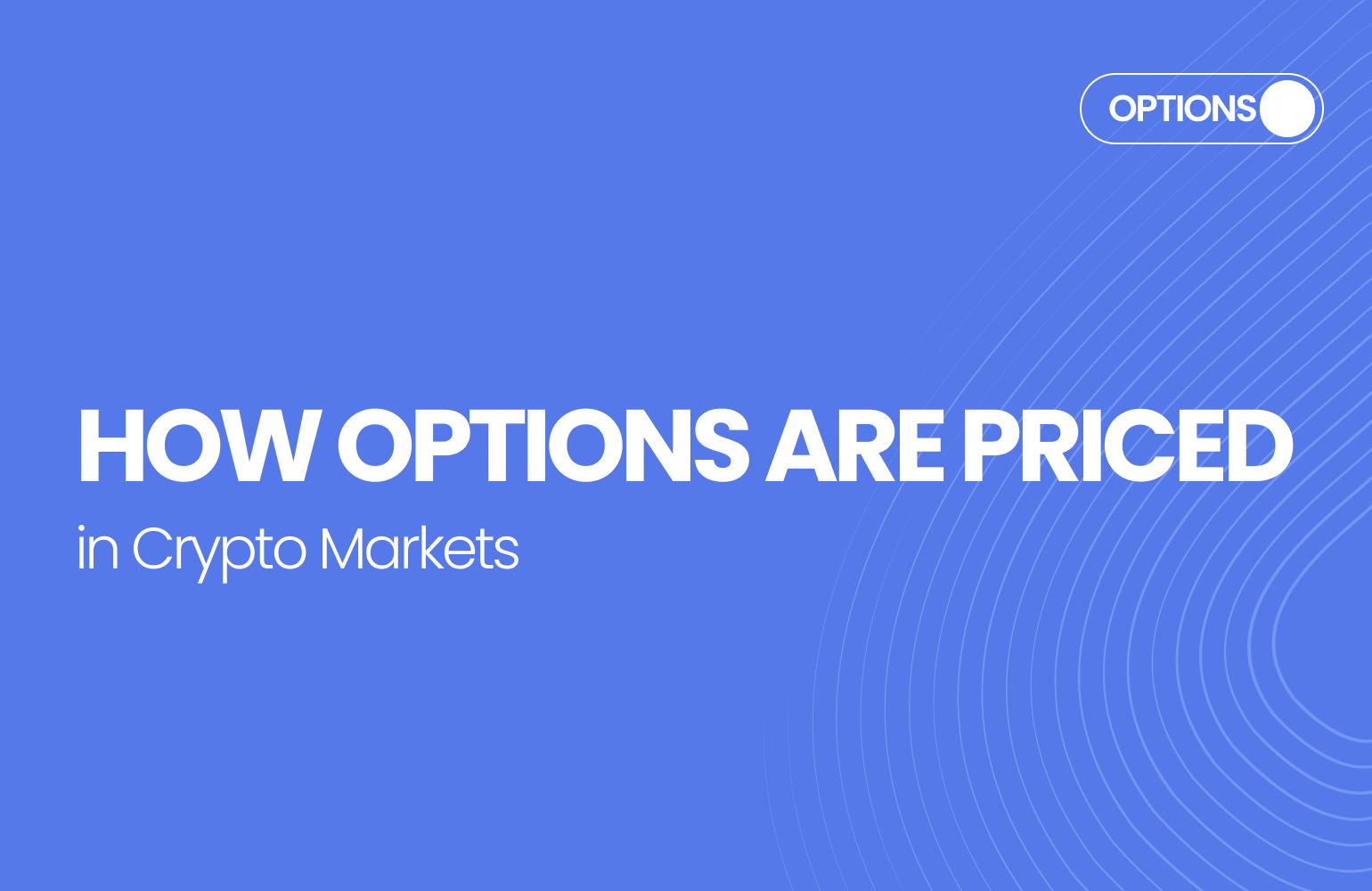For crypto options traders, understanding how options are priced is essential for making informed decisions. Whether you’re buying a call on Bitcoin or selling a put on Ethereum, the option premium you pay or collect is determined by mathematical options pricing models.
The two most widely used models are:
- Black-Scholes formula (for European options)
- Binomial Model (for flexible paths and American-style options)
Learn More: Difference Between European Options vs American Options in Crypto
In this guide, we’ll break down how these models work, what inputs they need, and how they apply to the volatile world of options pricing in crypto.
Factors That Influence Crypto Options Pricing
The Five Core Factors
- Underlying Asset Price (e.g., BTC, ETH)
- Strike Price of the option
- Time to Expiry
- Volatility (Implied & Historical)
- Interest Rates (and Cost of Carry for crypto
These elements are plugged into options pricing formulas to estimate fair value.
Black-Scholes Formula
Originally developed in 1973 for equity options,the formula is widely adapted to crypto options pricing, especially European-style contracts (which can only be exercised at expiry).
Formula (Call Option):
C = S * N(d1) – X * e^(-rt) * N(d2)
Where
- C = Call premium
- S = Current price of asset
- X = Strike price
- t = Time to expiration (in years)
- r = Risk-free interest rate
- N(d1) and N(d2) = Cumulative normal distribution values
Things to Note
- The model assumes a log-normal price distribution
- It’s ideal for liquid, efficient markets
- Doesn’t handle early exercise (use Binomial for that)
Use in Crypto
- Exchanges like Pi42 use modified versions
- Implied volatility is often back-calculated using this model
Binomial Options Pricing Model
A step-by-step model that builds a pricing tree.
- Good for American-style options (can be exercised anytime)
- Flexible to handle changes in volatility or time steps
How It Works
- Break the time to expiry into intervals
- Assume price moves up or down at each step
- Calculate option value at each node
- Work backward to find today’s fair price
Use in Crypto
- Helpful in scenarios with irregular volatility
- Used in institutional-grade options pricing in crypto for exotic contracts
Practical Example: BTC Call Option Pricing
BTC Spot: $60,000
Strike: $62,000
Time to Expiry: 7 days (0.019 years)
IV (Implied Volatility): 85%
Risk-Free Rate: 4%
Using Black-Scholes formula:
Approximate call option pricing = $850 (based on IV and time decay).
Insights:
- The closer the strike is to the spot, the more expensive the option
- Higher IV = Higher premium
- Less time = More Theta decay
👉 This shows why call option pricing in crypto can be very different from traditional markets.
Tools and Platforms That Auto-Calculate
- Pi42 Options Terminal: Shows real-time IV and crypto options pricing
- Deribit Calculator: For back-calculating Greeks and premiums
- Open-source tools: Python libraries like QuantLib, mpmath
Why Options Pricing Matters for Crypto Traders
For Buyers:
- Avoid overpaying by checking IV levels
- Understand why OTM options may look cheap but carry low probability
For Sellers:
- Price options with realistic expectations of decay
- Use models to assess risk-reward of premium collected
For Market Makers:
- Dynamic hedging requires real-time model recalculations
Conclusion
Understanding how options are priced gives you a massive edge in volatile markets. You don’t need to memorize the formulas, but you should know what drives value and how to quantify it.
Key Takeaways:
- Black-Scholes works best for simple, European-style crypto options pricing
- Binomial model offers flexibility for exotic or path-dependent trades
- Always factor in IV, expiry, and strike when evaluating a premium
👉 Ready to see call option pricing in crypto in action? Try the real-time pricing engine on Pi42 and start trading smarter today.
Keep Learning
Option Premium in Crypto: What Are You Really Paying For?
Options Market-Making in Crypto: Risk Management and Edge Explained

